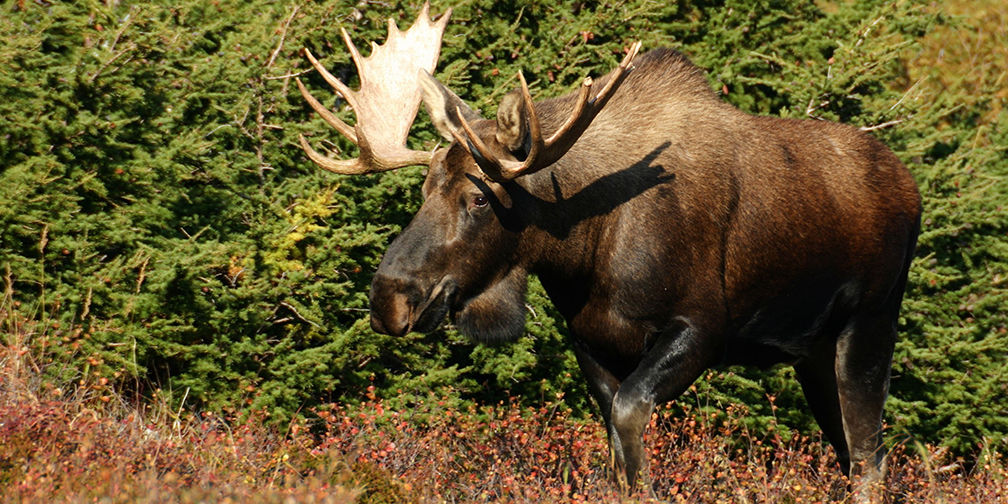Ontario Nature Blog
Receive email alerts about breaking conservation
and environmental news.
© Lora Denis
© Ryan McGilchrist CC BY-SA 2.0
On December 4th, Ontario’s Auditor General, reported that the provincial government’s climate plan was not supported by sound evidence and would fail to meet greenhouse gas emission targets. Given the implications – increases in flooding, drought, fire, extreme heat, insect infestations, disease outbreaks and more – all Ontarians should be demanding a new and viable climate plan that is based on facts, not fantasy.
There are other reasons to engage, however, beyond the enormous social and economic costs to humans. Climate change is also a major threat to biological diversity – the variety of species and ecosystems on Earth. Even now, climate change is altering and destroying habitats, increasing the spread of disease and parasites, changing inter-species relationships, and shifting the timing of breeding and nesting.

Scientists predict that globally 20 – 30 percent of plant and animal species will be at greater risk of extinction due to climate change. In Ontario, researchers are already documenting negative impacts to, among others, ducks, geese, moose and caribou.
For the sake of all life, we need to make the transition to clean, renewable sources of energy as quickly and efficiently as possible. Even if we support the objective, however, we may differ on how to achieve it. For example, wind farms have often been a source of dispute among nature lovers and green-energy advocates because of deadly impacts on birds, bats and other wildlife.

Risks to wildlife can be reduced through careful siting, design and operation of projects to avoid significant habitats and critical times of the day or year, such as migration, when animals are most vulnerable. And, of course, bird and bat mortality at wind farms pales in comparison to the devastating consequences of society’s continued reliance on fossil fuels, and even on other forms of renewable energy.
In designing and implementing solutions, we must not lose sight of the plants and animals with whom we share our lands and waters.
Originally published in The Power of Cleantech Campaign by the National Post.

Laurel Creek Conservation Area © Carl Hiebert / Grand River Conservation Authority
Hi Don
The week example is well documented with MNRF and Bird studies Canada.
Check out Bats international, they have several articles on this and continue trying to solve bat mortality wth turbines. Unfortunately you will never see any measures implemented into turbine in Ontario. It’s a joke to think that Canada with 1.7% of global pollutants can make any difference.
If we could become totally green what would we achieve 1.4% in the scheme of things It’s nothing. What people fail to see is we have our own sixth extinction going on in our backyard. The number one cause of extinction is habitat loss and we have the ability to solve this issue. If we could have used the funding from Green energy that mostly is foreign ownership, go towards habitat rehabilitation we could have made a significant difference in areas, like Chatham Kent or Elgin County. We have the highest number of species at risk. Native plants and reptiles are completely decimated in southern Ontario. I could only imagine what a group like Ontario Nature,AYLS ,Elgin County Stewardship Council could’ve done with the billions going abroad or green Energy. I hate harping but the orient has no interest in leaving coal -the largest polluters but if we developed clean burning coal what could that do to combat global warming?
Will we learn before it’s to late!!
I hope not.
We are all in this together.
Rob
Don,
With all due respect, I think you misunderstood the article. Anne was simply stating some people have concerns with wind farms due to bird mortality.
It’s not her own personal opinion, it’s a common public opinion people use to criticize renewables.
The point she’s making is though there may be concern such as bird mortality, it’s no reason to avoid transition to renewables like wind farms because the effects of global heating from fossil fuels far outweigh those concerns.
Have a good day.
Hi Anne.
I agree fully that Ontario needs a climate plan that is evidence based. And I would like to send this to my eco-minded friend. But I cannot. I think you picked a very weak example with wind farms. They are claimed to be destructive of bats and birds and wildlife. Show me the evidence! What other wildlife?
There are way better examples that are clearly evidence based, like birds killed by the thousands hitting windows and high-rise buildings. Dead birds are found in large numbers.
I suggest all examples you use need to be evidence based.
Thanks for the great work you do!
Don